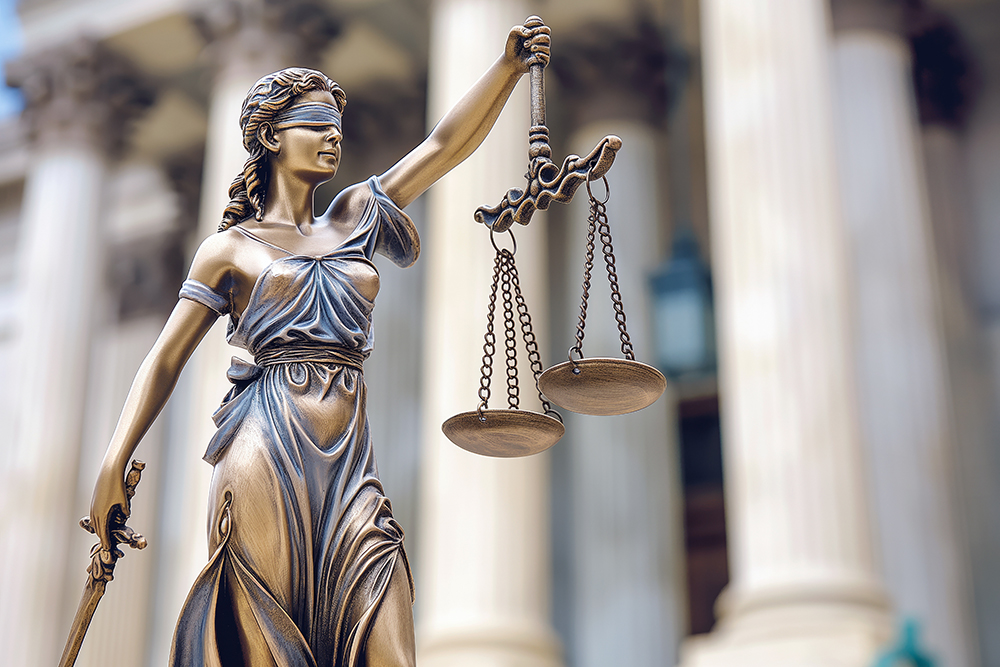
OWI/DWI/DUI First Offense in Louisiana
Under Louisiana law, OWI/DWI is a criminal charge resulting from a person 21 years old being found to have a BAC (Blood Alcohol Content) above .08% while operating any kind of vehicle. This can be a car, a plane, a boat or any other vehicle – if the driver is found to be under the influence of alcohol, illegal drugs, or medication they can be charged with OWI/DWI.
There are several other terms that fall under the same criminal statute: DUI (Driving Under the Influence), OUI (Operating a Motor Vehicle Under the Influence) or OWI (Operating a Motor Vehicle While Intoxicated) that are all covered under the same statute of Louisiana law.
When you are charged with OWI/DWI or any related charge, it is always in your best interest to fight those charges. Several factors that prosecutors rely on to build the case against you can have severe flaws that can harm their case. Law enforcement may have lapsed in following correct protocols during the arrest. The field sobriety test may not have been correctly administered. Equipment used to test BAC, such as a breathalyzer, can show inaccurate results or not have been properly calibrated,
An experienced attorney can leverage any or all of these factors to not only have your OWI/DWI charges reduced or dismissed, but also help retain your driving privileges, which is charged separately from the criminal OWI/DWI charge. Securing your ability to drive requires that you request an administrative hearing within 30 days of the initial arrest.
If you’ve been charged with OWI/DWI in Louisiana, you doubtlessly have several questions.


Is First-Offense OWI/DWI Considered a Misdemeanor or a Felony?
While both OWI/DWI or DUI first offenses are considered misdemeanors in Louisiana, various factors could lead to felony charges, including previous criminal offenses, death or injury resulting from the incident, and the presence of minors in the vehicle at the time of the incident.
Protect Your Driving Privileges
After a OWI/DWI arrest, safeguarding your driver’s license is key to fulfilling everyday responsibilities like getting to work and supporting your family. It’s equally important for family duties, such as driving the kids to school and getting groceries, which all rely on driving. A suspended license complicates these activities, forcing you to depend on less dependable transportation options.
Louisiana’s legal framework provides you with a 30-day window following an arrest to contest your license suspension, as stated in Louisiana Revised Statutes 32:667A(2). Missing this window leads to an automatic license suspension.
Our firm is proficient in these administrative hearings, with a history of upholding clients’ driving privileges as we navigate their OWI/DWI cases through the criminal court system. This period is critical to challenge the suspension, keep your license active, and collaborate with your lawyer to develop a strong defense. Don’t be a victim of something that can be prevented easily.
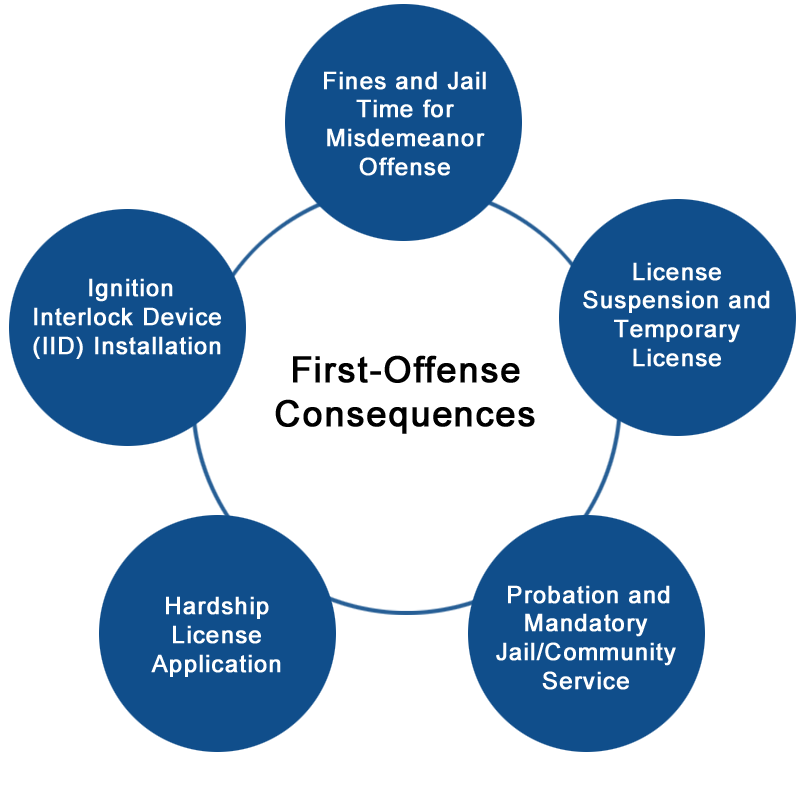 What are the Typical Consequences of First-Offense OWI/DWI/DUI?
What are the Typical Consequences of First-Offense OWI/DWI/DUI?
If the offense is being treated as a misdemeanor, Louisiana law typically calls for fines that range from $300 to $1,000 and a jail sentence ranging from 10 days to six months. Both can range much higher in the case of felony OWI/DWI or DUI, but even with a misdemeanor conviction, various factors can increase jail time. These include extraordinarily high BAC, the presence of a minor, and damage or injuries that result from the defendant’s actions.
In addition to fines and jail time, those charged with OWI/DWI or DUI for the first time can expect to have their license suspended for 12 months. During the initial arrest, the officer will seize the defendant’s license, issuing them a 30-day temporary license. After 30 days, they may apply for a hardship license, but otherwise the suspension will last a further 90 days.
The first-time offender may also be placed on probation, the duration of which will be determined by the court. Regardless of the length of probation, the defendant will serve a minimum of 48 hours in jail followed by 32 hours of community service.
A final consequence could be mandatory installation of an Ignition Interlock Device (IID) on their vehicle as part of a license suspension. Designed to keep a car from starting unless the driver can demonstrate sobriety through a BAC breath test, these devices are often installed in cases where the driver refused a breath test, had minors in the vehicle, caused injury or death, or demonstrated a particularly high BAC during the initial arrest.
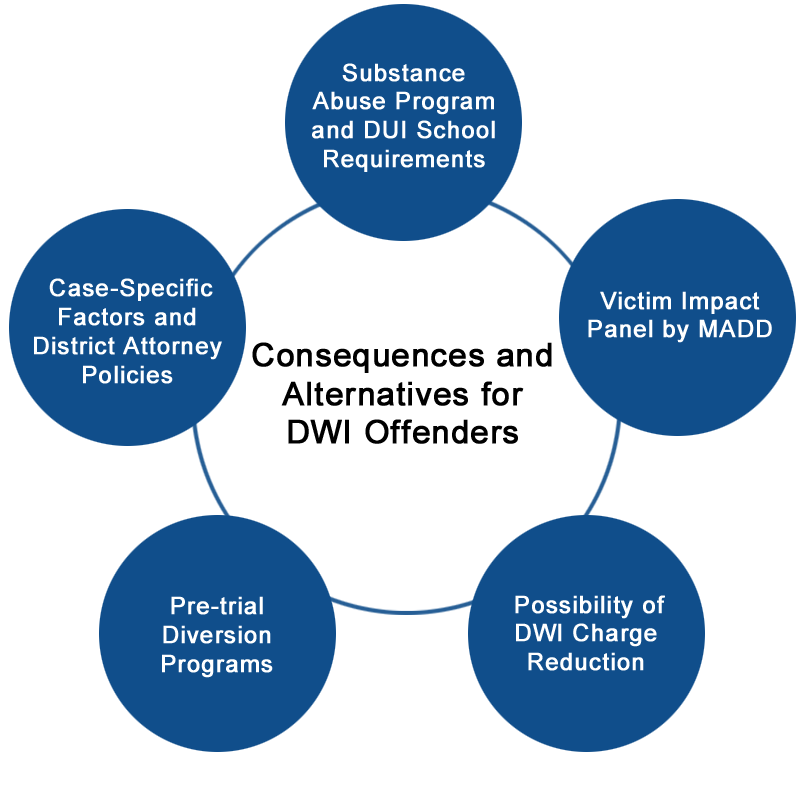 Does Louisiana Law Require Any Substance Abuse Programs or DUI School?
Does Louisiana Law Require Any Substance Abuse Programs or DUI School?
Generally, yes on both counts. Those convicted of OWI/DWI for the first time will ordinarily be required to complete both a substance abuse program as well as a driver improvement program (commonly referred to as “DUI school”). The specifics of each will be set by the court, but the intention of each is to educate the driver about the pitfalls of driving while intoxicated and deter them from reoffending.
In addition, those convicted for the first time may be required to attend a Victim Impact Panel organized by Mothers Against Drunk Driving (MADD). These panels consist of victims and their family members sharing their stories of how drunk driving affected their lives, educating drivers on the potential long-term real-life consequences of their actions.
Can a OWI/DWI Charge be Reduced?
Yes, potentially. One possible way to reduce first-time OWI/DWI charges is through a plea bargain, offering to plead guilty to a lesser charge in exchange for a reduction of the OWI/DWI charge. One potential reduction could be something like reckless driving.
Pre-trial Diversion
Another potential alternative is a pre-trial diversion program, completing a series of substance abuse treatments and educational seminars followed by community service in exchange for reduction or dismissal of charges. Attaining these will depend greatly on the specifics of the case and the policies put in place by the district attorney.
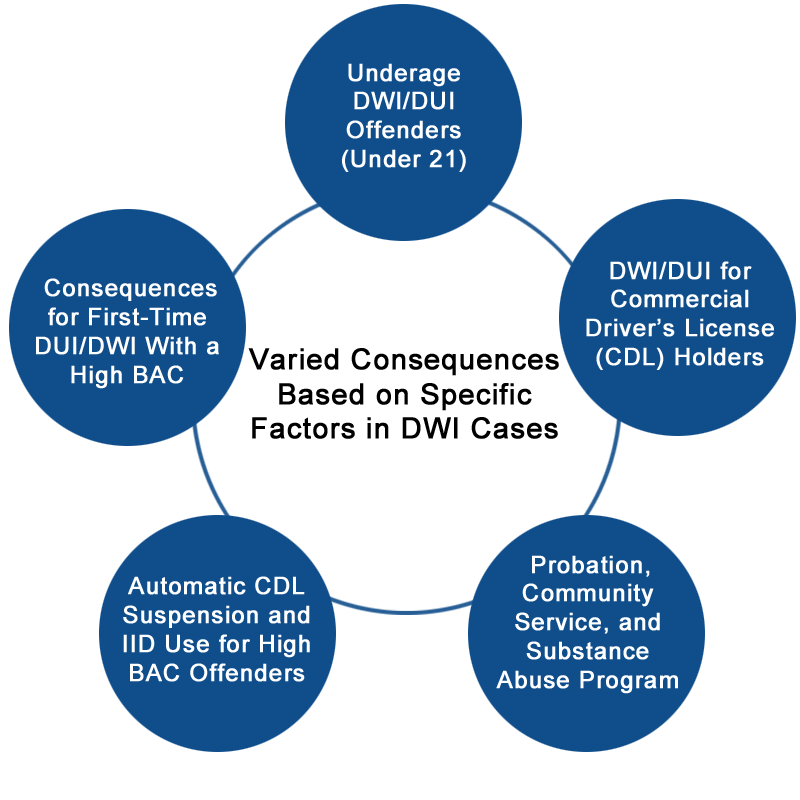 What if The First-Time Offender is Under 21?
What if The First-Time Offender is Under 21?
As the legal drinking age in the state of Louisiana is 21, those found driving under the influence while underage face a different set of penalties. To begin with, the threshold for OWI/DWI or DUI is lowered from the standard BAC of .08% to .02%. Beyond that, fines can range from $100 to $250 and potential jail time can range from 10 days to three months with the possibility of probation as an alternative. Part of this probation could include 32 hours of community service as well as mandatory participation in a substance abuse and driving program approved by the court.
What if the First-Time Offender Holds a Commercial Driver’s License?
As Commercial Driver’s License (CDL) holders carry a greater responsibility on the road, they face stiffer fines and penalties when found guilty of OWI/DWI or DUI. For one thing, while most motorists have the right to refuse a breathalyzer test, refusal to do so by a CDL holder will result in a loss of their license, with no option of attaining a hardship license. This will happen whether they are driving their commercial or personal vehicle at the time. In addition, CDL holders face different thresholds for BAC, with a one-year disqualification for a commercial license when demonstrating a .04% BAC in their commercial vehicle. Even if they are driving their personal vehicle at the time, a BAC of .08% will automatically result in a one-year suspension of their CDL.
What are the Consequences for First-Time DUI or OWI/DWI With a high BAC?
While the legal threshold for DUI or OWI/DWI is a BAC of .08%, those who test higher can face increasingly more stringent consequences the higher they test. For example, those found to have a BAC above .15% can expect a minimum of 48 hours in jail without suspension. If tested above .20%, that minimum jail time remains, with the addition of fines between $750 and $1,000 and installation of an IID for 12 months following reinstatement of their license. A BAC above that level will result in a two-year suspension of driving privileges, with an additional year of IID use following.
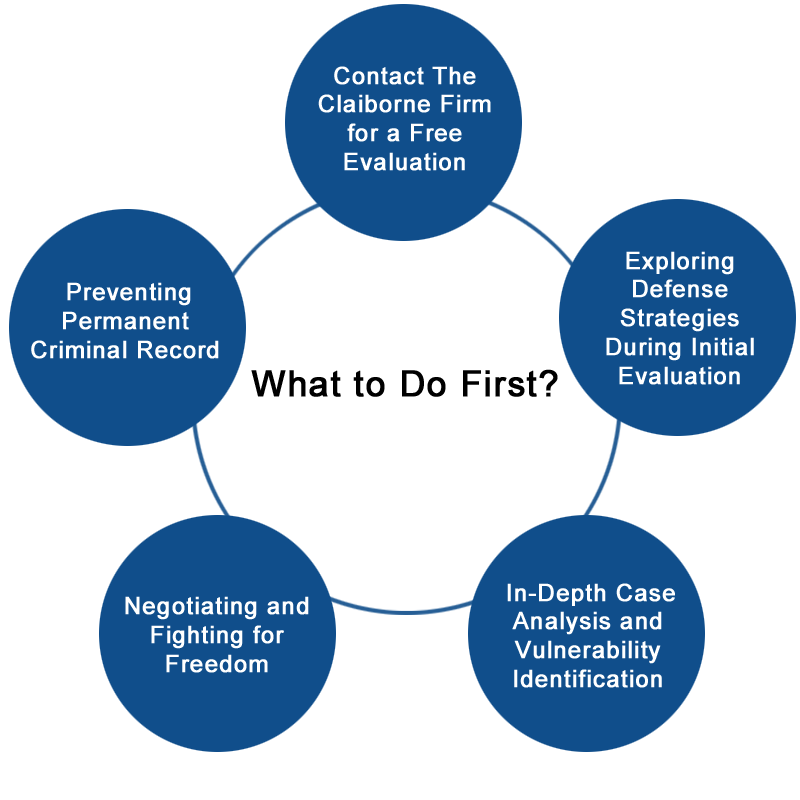 What Should Those Facing First-Time DUI or OWI/DWI Charges Do First?
What Should Those Facing First-Time DUI or OWI/DWI Charges Do First?
If you’ve been charged with OWI/DWI or DUI for the first time, your first call should be to The Claiborne Firm for a free no-obligation evaluation of your case. Our attorneys are experienced and highly skilled in reducing or dismissing DUI or OWI/DWI charges, using a combination of in-depth research and relentless dedication to your case.
During the initial evaluation, we will explore potential strategies for defense, educate you on the options before you, and begin devising our approach. Our attorneys will then dissect every detail, seeking out vulnerabilities in the case against you and gaining a deeper understanding of the case than the prosecution or the arresting officer. Armed with that knowledge, we will fight for your freedom at the negotiating table or in the courtroom.
Don’t let a OWI/DWI or DUI become a permanent mark on your criminal record. Take back your freedom and secure control over your life by submitting your contact information below.
Call (504) 294-8552 or Schedule a Free Case Evaluation Online
